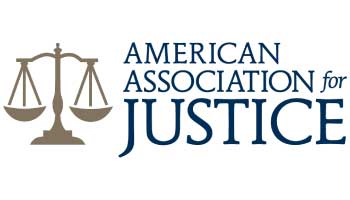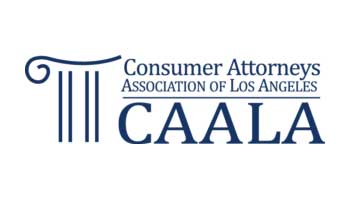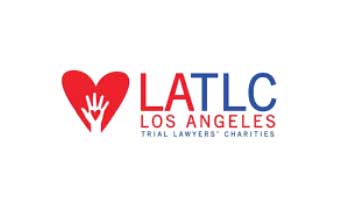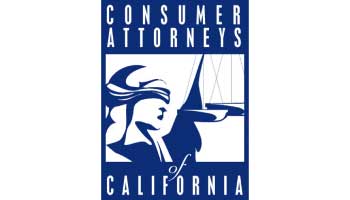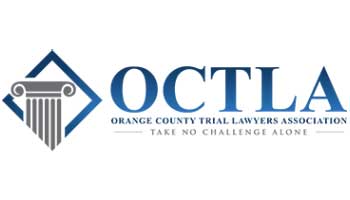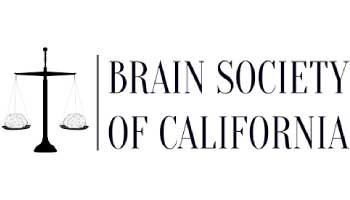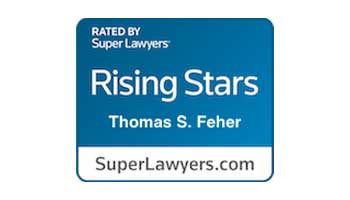California Sexual Harassment Lawyers
Free Consultation

- Top Rated Trial Firm
- Over $100 Million Recovered For Clients
- No Fees Unless We Win
FEATURED ON






Preventing and addressing harassment at work, especially sexual harassment, has always been a major focus for regulatory agencies.
According to the U.S. Equal Employment Opportunity Commission (EEOC), there was a 13.6% increase in sexual harassment charges filed from FY 2017 to FY 2018, coinciding with the global spread of the #MeToo movement.
Between FY 2018 and FY 2021, women filed 78.2% of the 27,291 sexual harassment charges, emphasizing the gender-specific nature of this issue. This needs to stop.
Are you seeking justice for sexual harassment in California? Our team of dedicated sexual harassment lawyers can help.
With years of experience navigating the complexities of sexual harassment cases, we are committed to advocating for your rights and ensuring accountability for perpetrators.
Why Feher Law Is a Top Choice for Victims of Sexual Harassment
When facing legal challenges, it’s essential to have a dedicated team by your side to provide tailored guidance and support. Our firm prides itself on offering compassionate and personalized advice to navigate you through every step of the legal process.
We prioritize your needs, ensuring that you feel heard, respected, and empowered as you seek justice.
- Empathetic Support: Cases involving sexual assault demand compassionate and sensitive treatment. Recognizing the profound impact of such experiences, our team approaches each client with empathy and understanding. We strive to create a safe and supportive environment where you can feel heard, validated, and empowered.
- Proven Success: Our track record speaks for itself. In the landmark case of Whipple vs. U.S. Metro, we secured a ground-breaking $2,700,000 verdict against U.S. Metro Group for their negligence in allowing a janitorial manager access to work sites, resulting in the sexual assault of an underage girl.
- Tailored Guidance: Our legal team is dedicated to providing personalized and attentive guidance as you navigate the complexities of your case, ensuring you feel heard, respected, and supported throughout the legal process. We understand the importance of tailoring our methods to meet your individual needs and concerns, offering caring advice every step of the way as you seek justice.
- Legal Expertise with Trial and Litigation: With extensive experience in litigation and trial advocacy, our team is equipped to handle every aspect of your case with precision and skill. From the initial filing of your claim to navigating complex legal proceedings, we provide expert guidance and strategic insights to effectively advocate for your rights. Our commitment to excellence ensures that your case is presented powerfully to secure the verdict you deserve.
CASE RESULTS
RESULTS FROM OUR MOST RECENT CASES
Meet Your California Workplace Sexual Harassment Attorneys
Our firm specializes in navigating the intricacies of employment law to ensure justice and uphold your dignity in the workplace.
Whether you’re facing harassment, discrimination, or other workplace injustices, we’re here to advocate for your rights and pursue the best possible outcome for your case.
Trust our experienced team to guide you through the complexities of employment law, providing compassionate support and expert legal advice every step of the way:
Some Kind Words From Our Clients
Browse through just some of our reviews from those of whom we’ve had the privilege of representing.
It’s clear they genuinely care about their clients and about maintaining strong professional relationships.
A special thank you to their senior case manager——-Omar. He’s outstanding extremely trustworthy, communicative and always on top of the details. He makes the entire process smooth and efficient.
We look forward to continuing our collaboration and strengthening our foundation.
I was really impressed with the speed with how they were able to work to close and settle my case!
Props to Omar and the rest of the team at Feher!!
I want to express my sincere appreciation for your hard work, (Omar ) and his dedication to get me the policy limit and decreasing as much as he could for my pocket. I am thankful for your efforts and consideration as well as empathy towards my case. I do want to note he worked as fast as he could and I really am thankful. Please consider feher law, as well as Omar.
Helpful 0
Thanks 0 Love this 0 Oh
Having a legal team who are honest, clear, and genuinely care makes all the difference.
I’m so grateful I found Tom and his team early on. They were so patient, kind, and always made me feel supported, even on the hardest days. In the end, I feel they got me the best settlement possible, and that peace of mind means everything.
I’d recommend them to anyone who needs legal help, especially if you’re dealing with a TBI…they really go above and beyond 💛✨
A special thanks to Gizi, whose guidance throughout the process was invaluable. Gizi’s dedication, knowledge, and unwavering support made a significant difference, helping me navigate with confidence and ease. Gizi was there every step of the way, ensuring I was informed.
The entire team at Feher Law demonstrated exceptional skill and commitment, and I wholeheartedly recommend their services to anyone in need of expert legal representation. Thank you Feher Law for turning a challenging situation into a positive outcome.
Ron s
I will refer This Law Firm to all my family, and friends.
Tom was able to secure so many multi-million dollar settlements and verdicts, that it is hard to list them all. I was impressed by his skills, composure, compassion, and work ethics. He is responsive, prideful, and beyond skillful.
I'm confident that Tom at Feher Law is the perfect attorney to handle all your personal injury cases including car and trucking crashes in Los Angeles and all of California. He has my highest recommendation.
Sexual Harassment Legislation in California Workplaces
At the federal law level, Title VII of the Civil Rights Act of 1964 stands as a pivotal safeguard against discrimination based on sex, encompassing sexual harassment within its purview.
Employers with a staff of 15 or more are obligated under Title VII to cultivate a workplace environment that is devoid of sexual harassment, with potential liability for acts committed by their employees.
In California, the Fair Employment and Housing Act (FEHA) is the primary legislation governing sexual harassment in the workplace.
Offering broader protections than Title VII, FEHA applies to employers with five or more employees and extends its prohibitions beyond sexual harassment to encompass other forms of harassment rooted in protected characteristics such as race, religion, disability, and sexual orientation.
What does this mean for you?
FEHA imposes stringent obligations upon employers to prevent and address workplace harassment, including the provision of comprehensive training for both employees and supervisors.
The evolution of relevant case law contributes significantly to shaping the legal framework surrounding sexual harassment. Court decisions interpreting both Title VII and FEHA establish precedents and clarify the rights and responsibilities of employers and employees alike in combatting sexual harassment.
Types of Sexual Harassment in the Workplace
Sexual harassment is delineated in alignment with federal guidelines established by the EEOC. This encompasses a broad spectrum of unwelcome behaviors of a sexual nature occurring within professional or educational settings.
Various instances exemplify this behavior:
- Physical Harassment: Initiating unwelcome physical contact, such as touching, groping, or sexual assault.
- Verbal Harassment: Sending explicit messages, making sexual comments or jokes, or prying into someone’s personal life regarding their sexuality.
- Visual Harassment: Exposing one’s genitals or engaging in sexual acts in the presence of others.
- Unwanted Sexual Advances: Making unsolicited sexual propositions or advances toward an individual.
- Quid Pro Quo Harassment: Requests for sexual favors in exchange for employment perks or under the threat of punitive measures.
- Displaying Explicit Material: The presence of explicit images, videos, or materials within the workplace environment.
- Derogatory Remarks: Making disparaging comments or jokes about an individual’s sexual orientation, anatomy, or gender.
The presence of unwelcome conduct, regardless of the perpetrator’s intent, constitutes sexual harassment. Some cases may be clear and explicit, while others can be more subtle or nuanced, highlighting the need for clear communication about boundaries.

Proving Sexual Advances and Unwanted Sexual Harassment
Proving workplace harassment can feel like finding your way through a maze without directions, full of legal twists and emotional challenges. Knowing what evidence is strong and how to gather it is essential for navigating this difficult process:
- Maintain Written Records: Keep emails, text messages, memos, or notes documenting harassment as evidence.
- Seek Witness Statements: Gather statements from co-workers or other witnesses to support your claims.
- Collect Physical Evidence: Take photos, recordings, or screenshots of the harassing behavior.
- Document Dates and Times: Keep a timeline of incidents with specific details like dates, times, locations, and descriptions of harassment.
- Describe Emotional Impact: Record how the harassment has affected you emotionally, including feelings of distress, anxiety, or humiliation.
- Note Physical Impact: Document any physical symptoms or health issues caused by the harassment, such as sleep disturbances or headaches.
- Detail Professional Impact: Describe how the harassment has affected your work performance, including decreased productivity or changes in job responsibilities.
How to File a Sexual Harassment Lawsuit
Experiencing sexual harassment in the workplace can be deeply distressing, but it’s essential to take proactive steps to address the situation. By filing a claim, you not only prioritize your well-being but also contribute to preventing such misconduct from persisting.
However, you must first follow these steps:
- Documenting Incidents: Meticulously document any instances of sexual harassment you experience or witness. Keep detailed records including dates, times, locations, descriptions of the behavior, and the names of witnesses. Documented evidence can include emails, text messages, memos, or any other relevant communications — see the above list for further guidance.
- Reporting to Employer: Follow your company’s specific procedures for reporting harassment. This may involve submitting a written complaint or speaking with a Human Resources representative designated to handle such matters.
- Filing a Complaint with the DFEH or EEOC: If your employer fails to address the issue adequately, you have the option to file a formal complaint with either the California Department of Fair Employment and Housing (DFEH) or the EEOC.
- Seeking Legal Representation: Our team of California employment lawyers offers essential guidance on your rights and assists you in filing a complaint with the appropriate regulatory bodies or legal authorities. We provide comprehensive support and explore all legal options, including the possibility of pursuing a civil lawsuit against your employer, to ensure justice is served and your rights are protected.
For more information on how we can help you, contact us today for a no-obligation and discreet conversation.

Wondering How Much Your Sexual Harassment Settlement Could Be Worth?
A sexual harassment compensation calculator can give you a clearer picture of what your claim might be worth. These tools consider a range of factors—like lost wages (back pay), future wages (front pay), missed promotions or raises, medical and therapy costs, job search or relocation expenses, and even legal fees and emotional distress—to estimate potential compensation.
While these calculators offer helpful estimates, your case is unique. For the most accurate evaluation and to maximize your settlement, schedule a free consultation with the experienced California sexual harassment attorneys at Feher Law.
Disclaimer: The results from this calculator do not constitute legal advice and should be used for estimation purposes only.
Why Should I Seek Help From a Sexual Harassment Law Firm?
When you choose an experienced sexual harassment attorney, you get someone to support and guide you through the legal process.
Your lawyer can help you file complaints with agencies like the DFEH or EEOC and may even help you take further legal steps against those responsible or your employer.
With expert legal help, you have a better chance of getting justice and compensation. Having Feher Law on your side means you can make sure those responsible are held accountable, all while safeguarding your career and well-being.
Report Sexual Harassment in the Right Timeframe
In California, the statute of limitations for filing a sexual harassment claim is typically three years from the date of the last incident. This means that an employee has up to three years from the most recent occurrence of sexual harassment to file a claim with the appropriate agency or court.
Even though this might feel like a long time, you should still act promptly if you believe you’ve been subjected to workplace sexual harassment. Waiting too long to take action may result in losing the opportunity to seek justice for the harassment you’ve endured.
This is especially the case since getting sufficient evidence together gets harder as time goes on.
What Can I Expect to Pay for an Experienced Sexual Harassment Lawyer?
We understand the financial strain that legal proceedings can impose, which is why we offer our legal services on a contingency fee basis for all employment law claims. This means that you won’t be required to pay any upfront costs or out-of-pocket expenses when you choose to work with us.
Under our contingency fee structure, our payment is contingent upon the successful resolution of your case. In other words, we only collect our fees if we secure compensation for you. This fee arrangement is designed to align our goals directly with yours, ensuring that we are fully invested in advocating for your rights and obtaining the justice and settlement you deserve.
By opting for a contingency fee arrangement, you can pursue your sexual harassment claim with peace of mind, knowing that you won’t incur any financial burden unless we achieve a positive outcome for you.
Serving the Entirety of CA
Expanding our reach, we extend our support to the victims of workplace sexual harassment across various locations. Our dedicated team is committed to providing compassionate legal guidance and advocacy to individuals facing sexual harassment at work beyond our primary location.
No matter where you are, we’re here to stand by your side and fight for your rights, including but not limited to:
|
|
|
|
Contact Our Sexual Harassment Lawyers in California
Feher Law is here to help you navigate the legal process with compassion, expertise, and unwavering dedication. Our team of experienced sexual harassment lawyers understands the complexities of California law and is committed to advocating fiercely on your behalf.
By contacting us you are not just seeking legal representation – you are enlisting the support of a trusted ally who will stand by your side every step of the way. We are passionate about ensuring that justice is served, and we will work tirelessly to protect your rights and hold wrongdoers accountable for their actions.
Don’t let sexual harassment go unaddressed. Contact us today to schedule a free consultation and learn more about the conduct of a sexual nature claim.
We're Experts in Employment Law
We cover a diverse range of legal situations arising from the workplace, including:
GET A FREE CONSULTATION
Our team is standing by and ready to assist you. Consultations are completely free and confidential. We will help you determine if you have a case.
- Over $100 Million Recovered For Clients
- No Fees Unless We Win
- We Fight for Maximum Compensation
- Get The Justice You Deserve
"*" indicates required fields
FAQs
Can I be retaliated against for reporting sexual harassment?
No, California law prohibits retaliation against employees who report or oppose sexual harassment in the workplace. If you experience repercussions after reporting harassment, you may have grounds for a separate retaliation claim.
What damages can I recover in a sexual harassment lawsuit?
You may be able to recover damages such as lost wages, emotional distress, punitive damages, and attorney's fees. The specific damages available will depend on the circumstances of your case.
Are there different types of sexual harassment recognized under California law?
Yes, California law recognizes two main types of sexual harassment: quid pro quo sexual harassment, where employment benefits are conditioned on submitting to sexual advances, and hostile work environment sexual harassment, where pervasive conduct creates a hostile or offensive work environment.
Can third parties, such as clients or vendors, be held liable for sexual harassment in the workplace?
Yes, under certain circumstances, third parties who engage in sexual harassment in the workplace can be held liable, particularly if the employer knew or should have known about the harassment and failed to take appropriate action to prevent it.








